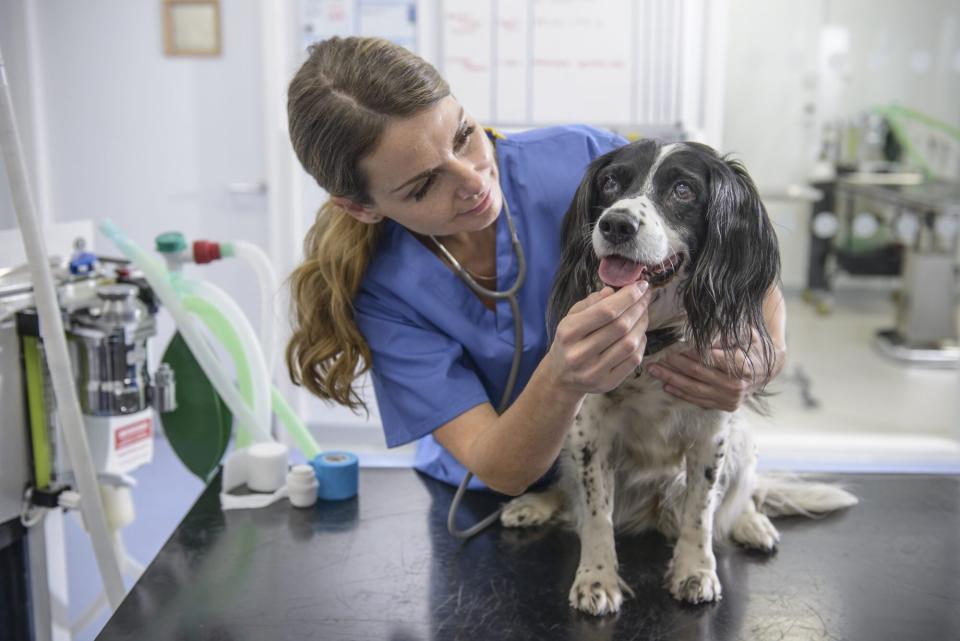How Often Should I Take My Dog to the Vet?
Just like you need an annual trip to the doctor for a yearly exam and some preventive screenings—so does your dog. In fact, when you commit to adopting a puppy or older dog, you're basically signing up for regular vet visits with your pooch.
How often do dogs need to see the vet?
It depends on your dog's age and health conditions, says Dr. Amy Stone, clinical assistant professor at the small animal hospital at the University of Florida College of Veterinary Medicine. "Puppies, like human babies, go to the doctor quite a bit in their first year of life for immunizations and other young animal issues. Once they are fully immunized and probably spayed or neutered, they typically need to come in for a visit yearly," she says.
If your dog has a health condition, they may need to be checked more often. Plus, depending upon their breed, Dr. Stone recommends starting biannual visits when your pup starts becoming more of a senior. In general, that's over seven years for small dogs and over five years for large dogs. "Unfortunately, dog's lifespans are much shorter, so this becomes important to keep them healthy for as long as possible," says Dr. Stone.

Getty Images
What happens when my dog visits the vet?
The most important thing that happens during these vet visits is a physical exam. "That will guide the veterinarian into what other testing may be needed to monitor your dog's health," says Dr. Stone. Also, on the table? Blood work and parasite monitoring and any vaccines that your dog is due for at that time, along with weight and a general health assessment of your pup's ears, eyes, teeth, belly, heart rate, coat, and a discussion of any trouble—whether health or behavioral.
What if my dog hates walking through the vet's doors?
The best thing you can do is try and make vet visits as happy as possible. If the dog is food motivated, plan a vet visit when they'll be hungry and then provide high-value treats–peanut butter and spray cheese–to reward staying calm and good behavior. Sometimes the different treats at the vet's office are enough to entice a reticent dog. You can also try wearing your dog out before a vet visit. A long walk, a romp at the park, or even an hour at the dog park could tucker him out enough to keep him better behaved and less concerned at his exam. Call or go visit your veterinarian without your pet to make a plan if visits have been difficult in the past. There are also calming medications you can try for extreme cases.
Can the vet catch cancer or other problems during these visits?
Absolutely. "You certainly catch many things with regular appointment," says Dr. Stone. "Kidney disease, endocrine issues (hypothyroidism, diabetes), and arthritis are just a few of the important diseases that can be caught early so that they are not debilitating for your canine companion," she says.
So don't put off your dog's regularly scheduled exams. They're an important part of keeping her healthy, happy, and disease-free. And visiting the vet for an exam when they're healthy helps your pup get used to going and being handled by the veterinarian. Oh yeah, and they have those yummy treats, too.

